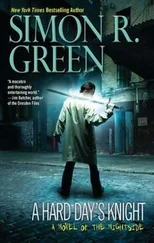She eyes Nicholas’s boxes. He was supposed to have come a week ago to sort through them but he hadn’t, and she had wanted to do it for him, but Robert had stopped her. They were Nick’s things, not hers. And Catherine had been frustrated because she damn well knew that Nicholas wouldn’t do it properly. And the point was, he didn’t have a bedroom here anymore. What they had now was a spare room. For guests. Of course Nicholas could come over whenever he liked. Of course he could. And if he ever wanted to spend the night, then of course he could do that too. But in the spare room. He has his own flat now. Pays his own rent. And that’s good. He is twenty-five years old. He has done better than they had ever dared hope. He has a job. A routine. Independence. And that’s what Catherine wants for him. A chance to be the best he possibly can be. The rush of thoughts leaves her breathless, as if she has spoken each one out loud.
“Darling?” Robert’s voice is gentle, but still it makes her jump. She looks up at him from her nest of torn newspaper, her hands black from it. It is nine o’clock and she has already been up for four hours. She sees concern on his face. She looks wrecked. At forty-nine, you can’t get away with not sleeping and think it won’t show. Of course he notices her pale, dark-ringed face.
“I wanted to make a start before Nicholas comes. To make it easier for him,” she lies and looks around at the chaos.
“It can wait. There’s no rush. Let him do it.” He puts a hand on her shoulder. “Scrambled eggs?”
She nods. She is starving. She always is now she doesn’t sleep. She follows him downstairs and slumps into a chair at the kitchen table, a dead weight in the room.
“Shall I do lunch?” he suggests. Nicholas is coming for Sunday roast and she has bought a chicken.
“No, no, I’d like to,” she says. She knows it will make her feel better if she can play her proper role and disguise herself in the smell of roasting meat juices.
She can see the book at the far end of the kitchen table. She had hoped that removing it from their bedroom would give her some peace. Robert is watching her, nursing questions in his head. Is she depressed? Is it the move? He is about to speak, but Catherine gets in first. She has been nursing her own question, preoccupied, playing with it, and so doesn’t notice Robert’s intake of breath, his preparation for speech. If she had she might not have plucked up the courage to ask:
“Is that your book?”
She makes sure her mouth is full so she appears casual as she nods to the end of the table. Robert glances over and reaches for the book, sliding it towards him. He takes a while to answer, but when it comes, his answer is dismissive. A shake of the head.
“Any good?” He picks up the book, turning it over, reading the blurb on the back.
She swallows. “Not really. Bit slow.” She watches him turn it over again and look at the cover.
“ The Perfect Stranger ,” he reads. “What’s it about?”
She shrugs. “Oh, it’s nonsense really. Weak plot. Implausible.” And he tosses it aside. Carelessly. No thought. Treating it in a way she wishes she could.
“Why?”
“I thought it might be yours,” she ventures.
“Thanks,” he says, but she misses the smile in his voice.
“I don’t remember buying it, that’s all. I wondered where it came from…” And her voice trails off as she stands and takes her plate to the dishwasher. Robert shrugs at the book, wondering why she’s so interested in it, thinking it’s just a diversion from the thing that is really worrying her. He is convinced that she is trying to make conversation and this worries him. They’re not that kind of couple. They don’t need to “make conversation.” They are close, closer now than they’ve been in years. But he recognises the signs. Catherine at home with too much time on her hands, too much time looking inwards, thinking about herself.
“Cath. You’ve done a great job on the house — it already feels like home. But I know you too well. You’re itching to get back to work, aren’t you.”
She looks at him. He really believes that.
“I love that you’re not a domestic goddess. You should be off making another film, not stuck here unpacking boxes and dressing the house.” Her eyes fill with tears, confirmation to Robert that he is right. He is her rock. She lets him believe it.
“You’re right, I know I’ve been distracted—” He cuts in.
“So go back — there was no need to take two weeks off. Most of it’s done now anyway and the rest we can do together in the evenings, weekends. There are only a few boxes left anyway. Why not?”
“Yes, why not,” she says and manages a smile. And then her brain sparks to life. She remembers. She remembers how the book came to be in their home. It’s seeing it sitting on the table. An image she remembers. It was just after they moved. The table had been littered with stuff. A box full of glasses half unpacked, screwed-up scraps of newspaper tickling the book’s cover as it sat there patiently, waiting for her to pick it up. A pile of unopened post and a jiffy bag, its grey fluff exposed where she’d ripped it open. And from which she had taken the book. The envelope had been forwarded on to them. She remembers the thick red ink which had crossed out their old address and written on the new. She can feel Robert’s eyes on her as she clears away the rest of the breakfast things; her renewed energy confirms to him that he was right. He knows her so well.
Thoughts fizz through her head: the book was sent to their old address, so whoever sent it doesn’t know where she is now. They did not come into her home, into her bedroom. She will telephone the family who moved into their old house. She will ask them not to forward anything else. It’s too much trouble, she’ll say. She’s happy to come and collect anything. Perhaps she will go further. Perhaps she will say that they’ve had a couple of nuisance letters, nothing too serious, but they’d rather not have anything else forwarded. And if anyone asks for their address, please would they just say that they don’t have it? Or their phone number, no they mustn’t give out the phone number. She decides all this while kissing Robert on the forehead and going upstairs to have a shower. She will do all this tomorrow though, not today. Today she will concentrate on Nicholas, on her family. On having a proper Sunday together.
I hoped that working on a book about eighteenth-century monoliths would keep my head clear — that it would divert my mind from dwelling on Nancy’s betrayal. That’s how I thought of it then. I thought of her secret as a betrayal. I tried not to. I tried very hard to concentrate on writing about the Martello tower. I had propped a photograph of one on the dresser shelf above the collection of postcards Jonathan sent from his travels. It squatted there, lumpen and grey, so I took it down again. How could I concentrate? There was a sliver of metal rattling around in my head. A tiny shaft of silver taunting me from my desktop. Attached to the spare keys to Jonathan’s flat, which I had found in Nancy’s bag, was another smaller key. Too small for a front door but a key to something else, a key to something which was in his home, not mine. It caught the light and winked at me every time I tried to focus on my work. Who did I think I was? A man with ten-feet walls to protect him from the past? I wasn’t built like a Martello tower. I was a man with thin, crepey skin who needed to find out what else his wife might have hidden. I was human, at least. That slip of a key had burned a hole in my head and I knew I wouldn’t be able to write anything until I had unlocked its secret.
Читать дальше












